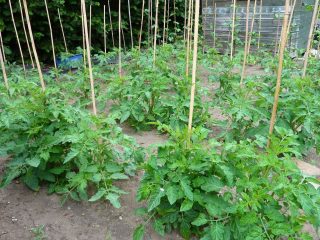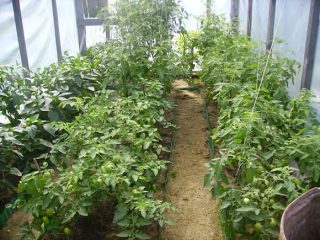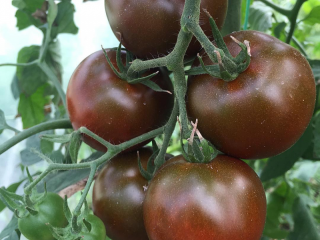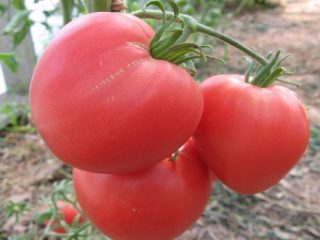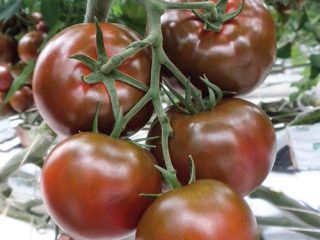Content
Tomato seeds do not germinate for a variety of reasons, and they are mainly associated with the creation of unsuitable conditions. For example, insufficiently high temperature, short daylight hours. Another factor may be insufficiently high quality seeds. These and other reasons, as well as ways to solve the problem, are described in this article.
Why didn't the tomato seeds germinate?
Normally, seeds should sprout 8-12 days after sowing. In this case, the container is placed in a warm place with good lighting, and greenhouse conditions are created.
If you take good care of the seedlings, pre-soak the grains in a growth stimulator, they will begin to sprout in 5-7 days. But if the deadline has expired and there are still no sprouts, this indicates a clear violation. The main reasons for this phenomenon are described below.
Poor quality seeds
If all the conditions have been created, but the tomatoes have not sprouted well, the problem is most likely due to insufficient quality seeds. There could be several reasons:
- More than three years old after collection.
- Failure to comply with storage conditions (high temperature, high humidity, lack of darkness).
- Unscrupulous manufacturer.
When seeds do not germinate within 10-12 days, this may indicate their low quality or expiration date. Therefore, you should buy planting material only from responsible manufacturers who have been working on the market for many years and have good reviews.
In addition, after purchase it is recommended to carefully inspect the grains. They must have a smooth surface, without any spots, plaque, wrinkles, cracks or other defects.
Unsuitable soil
When tomatoes do not sprout for 10 days or more, the reason may be due to insufficient quality soil. The soil should be fertile and loose, without lumps and dense fragments with a large amount of clay. The optimal pH is 6-7, i.e. the reaction is slightly acidic or neutral.
If these conditions are not met, the tomato seeds will not germinate and may even die, deprived of access to oxygen or nutrients. Therefore, it is recommended to purchase high-quality universal soil for seedlings.
You can make a mixture yourself based on several components (ratio 2:1:1:1):
- turf land;
- black peat;
- humus;
- coarse sand.

The soil should be fertile and not very dense
First, it should be kept for 10-15 minutes in the oven at a temperature of 120 degrees. If this is not possible, it is recommended to put it in the freezer for several days or pour it with a weak solution of pink potassium permanganate. Otherwise, tomato seeds do not germinate due to infection with fungi or other infectious agents.
Failure to comply with temperature conditions
Tomatoes are heat-loving, so seeds often do not germinate due to insufficiently high temperatures. It is recommended to grow seedlings at 23-28 degrees. At night, a drop to 20 is allowed. But if the temperature drops below 18, the grains will not germinate and may even rot in damp, cool soil.
To prevent this, it is important to maintain the temperature within the established limits and create greenhouse conditions by covering the boxes with film or transparent glass. They are removed periodically to provide fresh air.
Lack or excess moisture
If tomatoes do not sprout for a long time, this may be due to a violation of the watering regime. Tomatoes are moisture-loving, and often they do not sprout precisely because of insufficient water volume. It is recommended to water the seedlings daily even before germination, creating greenhouse conditions using a cover in the form of film or transparent glass.
It is very important to remove it periodically for ventilation, because otherwise the seeds will not germinate and may rot. Excessive watering also leads to this, so it is important to follow a certain norm so that the soil is not overly wet and does not become “soggy.”
Deep sowing of seeds
Tomato seeds are small, although they can vary quite greatly in size depending on the variety and quality.If they do not sprout, the reason may be due to deep sowing. Normally, they should be planted at 5-10 mm, but no more (i.e., maximum 1 cm). Small grains are slightly pressed into the surface of the soil, and then sprinkled with earth.

Seeds are sown to a depth of no more than 1 cm
On the other hand, tomatoes also do not sprout if you simply spread them on the soil. In this case, they have poor contact with the ground and may simply dry out. Therefore, it is worth sticking to the golden mean.
No pre-sowing treatment
When tomatoes do not sprout for 7 days, the situation is normal. But if 12 days or more have passed and there are no sprouts, this is a clear deviation. It may be due to the fact that the grains have not been pre-processed. The following operations are carried out with tomato seeds even before sowing:
- Pickling in a solution of potassium permanganate (1 g per 1 l) for 20-30 minutes, but no more.
- Soaking in ordinary water (preferably filtered or melted water), which has previously been left for 12-24 hours. It is enough to plant the seed for 4-5 hours.
- Soaking in a growth stimulator - overnight the grains are placed, for example, in a solution of Epin or Energen. Thanks to this, tomato seeds germinate quite quickly - in just 5-7 days.
Failure to comply with planting deadlines
This reason is not as significant as others. If tomato seeds do not germinate, this is most often observed, for example, due to insufficiently high temperatures or waterlogged soil. On the other hand, it is better to observe the sowing dates, focusing on the period from the end of February to the first ten days of March.
If planted too early, the tomatoes will not get enough light. In such conditions they do not sprout, but you can install phytolamps or other lighting.Then the process will go normally, although it is worth considering that it is better to transplant into the ground only in mid-May. Therefore, it is advisable to plant seeds for seedlings no earlier than the last days of February.
What to do if tomato seeds do not germinate
If tomato seeds do not germinate well, several urgent measures need to be taken. When only 7-12 days have passed, the situation can still be corrected. To do this, it is recommended to carry out loosening, as well as treatment with stimulants.
Loosening
The substrate for tomatoes should not only be fertile, but not too dense. A high clay content or excessive watering leads to weighting. Due to the last factor, even the most fertile soil can become too heavy, so the seeds are deprived of access to air oxygen and do not germinate.

Loosening the soil will help increase the chances of germination.
To prevent this from happening, it is recommended to thoroughly loosen the soil. Since the seeds have already been planted, this must be done carefully using a toothpick. Only the areas between the grooves are loosened so as not to damage the seeds. The procedure is carried out several times after each watering. Thanks to this, tomato seeds germinate more efficiently.
Treatment with stimulants
If the grains have not sprouted, you can spray or gently water the soil with a solution of any growth stimulant. The most common drugs are:
- "Energen" contains liquid potassium humate. Stimulates growth processes, helps strengthen plant immunity. To use, simply dissolve 30 drops in 1 liter of settled water.
- If tomato seeds do not germinate, they can also be treated with Epin. It contains a plant hormone of artificial origin called brassinolide. For use, take a 2% solution.
- “Zircon” is a product that stimulates the appearance of seed sprouts of all cultivated plants. Use in the amount of 10 drops per 1 liter.
Preventive measures
If tomato seeds do not germinate, it is not always possible to help solve the problem. In addition, there is a risk of losing 1-2 weeks of time and some effort. To prevent this from happening, it is recommended to follow proven preventive measures:
- Do not purchase seeds from dubious sellers. Saving money will be small, but the risks will increase significantly. If the tomato seeds do not germinate, this will result in a waste of time.
- Meet the deadlines - it is better to start work in the last days of February. Since it is still dark at this time, it is necessary to provide additional lighting. To do this, LEDs or phytolamps are placed at a height of 40-50 cm from the seedling boxes. They are turned on in the morning and evening so that the total daylight hours are 14-15 hours.
- Be sure to inspect tomato seeds after purchase. If dry, small grains with cracks and wrinkles are not rejected, some of the seed will not germinate.
- It is very important to first check the seeds for germination. To do this, prepare a salt solution - a teaspoon per glass, pour it there and wait up to half an hour. If any grains float to the surface, they are immediately rejected.
- In order for tomato seeds to sprout, they should first be soaked not only in ordinary water, but also in a solution of a growth stimulator. It is this technique that ensures rapid germination within 5-7 days and increased germination.

The use of high-quality seeds and good care guarantee high germination rates
Conclusion
Tomato seeds do not germinate mainly due to infertile soil, planting errors or violations of care rules. It will also not be superfluous to first take care of the quality of the seed and carry out processing. Thanks to this, the tomatoes will sprout amicably within a week after sowing.
